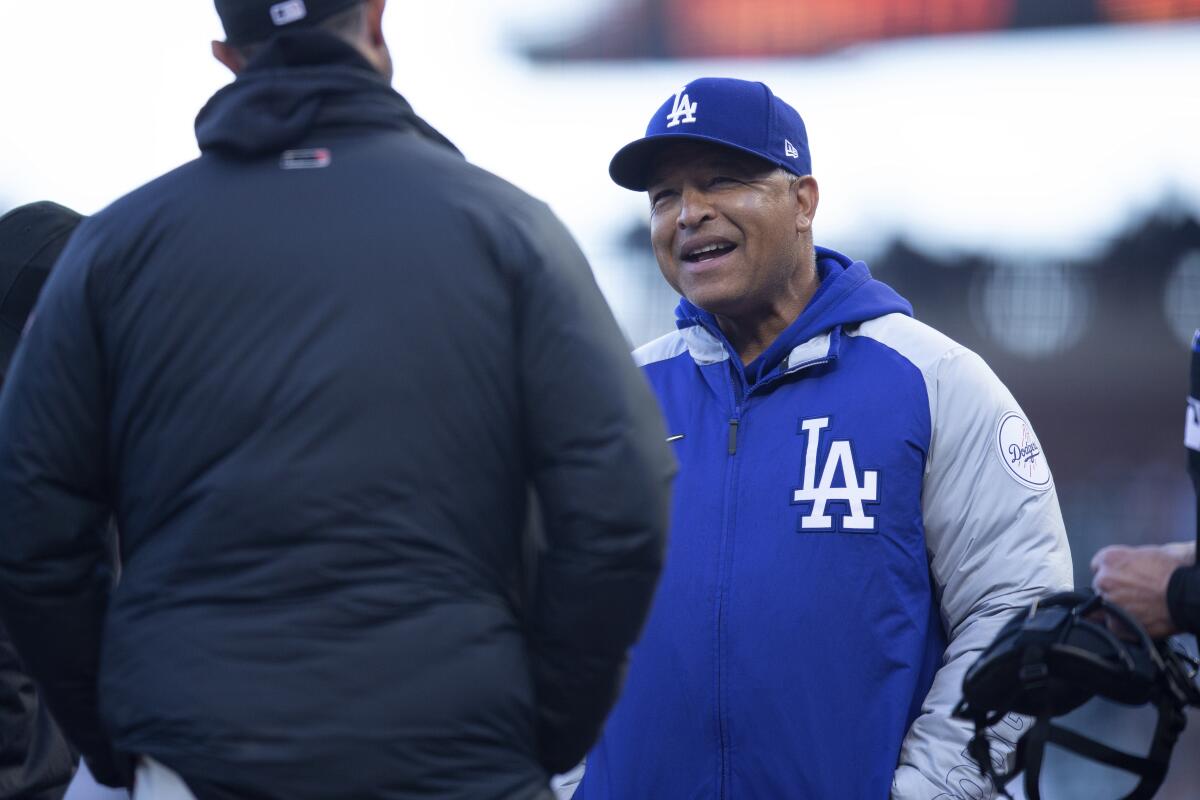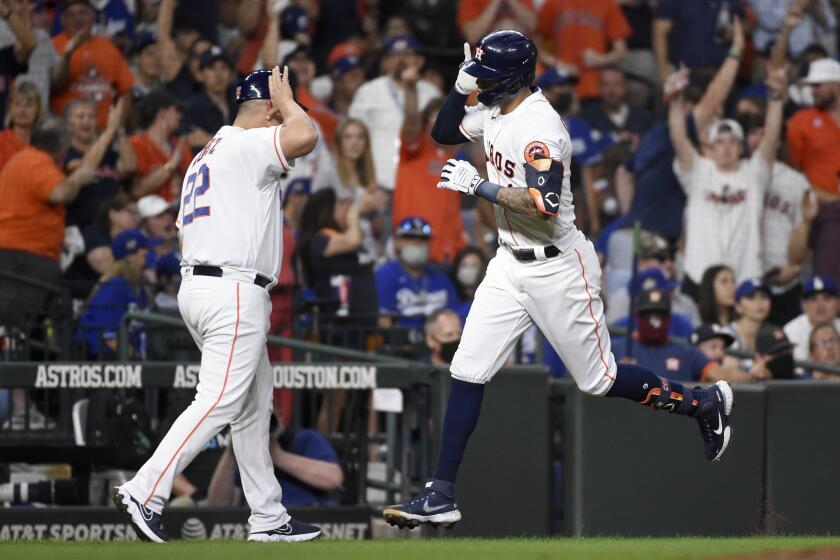Baseball’s latest dirty secret is a sticky subject for some pitchers

After St. Louis Cardinals reliever Giovanny Gallegos was ordered to change his cap Wednesday because umpires disapproved of the sunscreen on the bill, Cardinals manager Mike Shildt broached the taboo topic of pitchers’ widespread use of foreign substances in defense of his player.
“This is baseball’s dirty little secret,” Shildt told reporters, “and it’s the wrong time and the wrong arena to expose it.”
It’s common knowledge around the majors: More pitchers than ever are using “sticky stuff” to doctor baseballs to increase spin rate, a property that front offices have increasingly prioritized when evaluating performance. A better spin rate usually improves a pitch’s movement, increasing the chances of a hitter swinging and missing. Strikeouts are the preferred outcome in 2021. Pitchers are rewarded — with service time and money — when they miss bats.
This week, Dodgers manager Dave Roberts confirmed he has seen an increase of foreign substances to manipulate pitch movement in recent years.
“I think that in baseball, players are always looking for a competitive advantage and right now where the league is at, they’re in the mindset or in the process of just gathering information each day on baseballs,” Roberts said Tuesday. “So, right now, where we’re at, players are going to push the limits. But I do think that at some point, baseball will come up with something unilaterally [to police pitchers]. But, yeah, I’ve seen an increase.”
Dodgers pitcher Trevor Bauer has gone to great lengths in an effort to ‘own’ the Houston Astros. But he’s the one who got owned in his latest outing against the team.
Asked if he’s had conversations or plans to have conversations about foreign substances with his pitchers, Roberts said no.
Does he know if his players are using them?
“I don’t know,” Roberts said. “I don’t have those conversations. I really don’t know.”
Roberts played in the minor and major leagues in the 1990s and 2000s — during the height of the steroid era. He agreed that some pitchers now feel pressure to use foreign substances to keep up with peers the same way some players were compelled to use steroids to keep up with others in his playing days. The fear is the same: If you’re outperformed, you won’t stick around in the major leagues to fulfill the dream and make the money.
“Guys, again, they’re going to do what they can until the league enforced that you can’t and consequences with it,” Roberts said. “So, I think that’s where we’re at with the stuff.”
In late March, before the season started, Major League Baseball sent a memo notifying teams of plans to implement increased monitoring of baseballs to crack down on pitchers’ use of foreign substances. It described the creation of “Gameday Compliance Monitors” instructed to look for violations of rules in the dugout, tunnel, batting cages and bullpens.
The memo, however, stated that umpires would continue enforcing the rules “consistent with recent past practice.” The goal, as stated, was to provide the commissioner’s office “with a separate evidentiary basis to support a finding that a player has violated the foreign substance rules.”
Hitters haven’t publicly protested the activity presumably because pitchers on every team are benefitting from the edge. Calling attention to the matter could lead to teammates facing discipline and, subsequently, a regression in performance. Meanwhile, there have been six official no-hitters and fewer balls in play than ever leaguewide this season.
Are you a true-blue fan?
Get our Dodgers Dugout newsletter for insights, news and much more.
You may occasionally receive promotional content from the Los Angeles Times.
It wasn’t until Wednesday, when umpire Joe West ordered Gallegos to change his cap, that any rule regarding foreign substances was enforced during a game. Shildt vehemently protected his reliever. He argued that Gallegos’ concoction — sunscreen and rosin — was widely accepted, even by hitters, because it improves grip and hasn’t been proved to increased pitch movement.
“Let’s go check the guys that are sitting there going into their glove every day with filthy stuff coming out,” Shildt said, “not some guy before he even steps on the mound with a spot on his hat.”
It’s a problem everyone knows exists. It’s just a matter of when and what Major League Baseball does about it.
More to Read
Are you a true-blue fan?
Get our Dodgers Dugout newsletter for insights, news and much more.
You may occasionally receive promotional content from the Los Angeles Times.









